How do you feel about New York, New York?I don't know why, but having the nation of Liberia have a province also called Liberia bothers me immensely.
You are using an out of date browser. It may not display this or other websites correctly.
You should upgrade or use an alternative browser.
You should upgrade or use an alternative browser.
Let The Eagle Scream Version 2: Star-Spangled-Boogaloo
- Thread starter Murica1776
- Start date
- Status
- Not open for further replies.
Threadmarks
View all 88 threadmarks
Reader mode
Reader mode
Recent threadmarks
From Camelot to Chaos: The Kennedy Years "He's A Damn Demagogue:" The One-Term Presidency of Thomas Sowell The Dragon Rises The World in 1980 The Country's Not Alright: The One-Term Presidency of Richard Brown Culture War: The New Jihad/Tenth Crusade The Great Melting Pot: Race Relations, Intermarriage and the Rise of "American Race Theory" "A New Eurasia"Now that is a T H I C C Liberia. I'm not sure how big the Black Man's Republic is gonna get, but they do have a puppet state (well, kind of a joint puppet state) in the Ivory Coast
With Protestant missionaries heavily going into heavily Catholic areas and converting, has there been any attempt by the Catholic Church to counter it, either internally through reform or other ways? How are Catholics in the States viewing this and how are they treated thus far. Could one eventually be seen as American and yet still be Catholic, much less a follower of other faiths (or none at all)?
There may be a backlash from the Catholic Church, remember all that stuff about Croixism? When Alt!WW2 breaks out, it’s possible that the Vatican could openly endorse the Croixist cause and try to call on Catholics in American and German territories to rise up or at least try to sabotage the American and German war efforts.I mean, there have always been Catholics in America. Maryland was meant to be the "Catholic Experiment" after all. Being Catholic isn't inherently seen as unamerican, its just that foreign-born Catholics are viewed as possible agents of the Papistry. Even in the 1900s, it is better to be a Catholic Christian than to not be a Christian at all.
Also, I would imagine there would be backlash from the CC over all the converting, but evidently they haven't been able to do much to counter it.
I don't think you give the Pope or Catholics enough credit. I mean, from what I understand, the Pope has done his best in recent centuries to be as impartial to worldly goings-on as possible. I don't think that he would risk alienating Catholics that don't live in one of the Croixist countries with hawkish rhetoric. And even if he did, I'm not sure that American Catholics would really go for that. I mean, some probably would, but I think the majority would just politely ignore him. You can still be a Catholic and not approve of everything the Pope proclaims, I've heard Catholics talking before about how they don't approve of a bunch of the things Pope Francis has done and said, but they still consider themselves good Catholics. There have been so many bad popes in history that there comes a point that you realize that the Pope really isn't infallible, and you need to be able to keep true to your faith independently of the leader of that faith.There may be a backlash from the Catholic Church, remember all that stuff about Croixism? When Alt!WW2 breaks out, it’s possible that the Vatican could openly endorse the Croixist cause and try to call on Catholics in American and German territories to rise up or at least try to sabotage the American and German war efforts.
Besides, Catholics are still looked down upon in America at this point. They don't want to alienate themselves from their fellow Americans any more than they already are.
Fair enough. Still even if the Pope himself doesn’t endorse it and tries to be neutral, there are probably many in the Vatican who would probably be enthusiastic about or at least sympathetic to the Croixists and would do all they could to support any Croixist groups and nations.I don't think you give the Pope or Catholics enough credit. I mean, from what I understand, the Pope has done his best in recent centuries to be as impartial to worldly goings-on as possible. I don't think that he would risk alienating Catholics that don't live in one of the Croixist countries with hawkish rhetoric. And even if he did, I'm not sure that American Catholics would really go for that. I mean, some probably would, but I think the majority would just politely ignore him. You can still be a Catholic and not approve of everything the Pope proclaims, I've heard Catholics talking before about how they don't approve of a bunch of the things Pope Francis has done and said, but they still consider themselves good Catholics. There have been so many bad popes in history that there comes a point that you realize that the Pope really isn't infallible, and you need to be able to keep true to your faith independently of the leader of that faith.
Besides, Catholics are still looked down upon in America at this point. They don't want to alienate themselves from their fellow Americans any more than they already are.
I don't think you give the Pope or Catholics enough credit. I mean, from what I understand, the Pope has done his best in recent centuries to be as impartial to worldly goings-on as possible. I don't think that he would risk alienating Catholics that don't live in one of the Croixist countries with hawkish rhetoric. And even if he did, I'm not sure that American Catholics would really go for that. I mean, some probably would, but I think the majority would just politely ignore him. You can still be a Catholic and not approve of everything the Pope proclaims, I've heard Catholics talking before about how they don't approve of a bunch of the things Pope Francis has done and said, but they still consider themselves good Catholics. There have been so many bad popes in history that there comes a point that you realize that the Pope really isn't infallible, and you need to be able to keep true to your faith independently of the leader of that faith.
Besides, Catholics are still looked down upon in America at this point. They don't want to alienate themselves from their fellow Americans any more than they already are.
The Pope won't endorse the full on Croixists, but a reactionary regime in Latin America with quite a few similarities will be getting an unofficial Papal nod.
I do wonder, since ITTL it’s being set up as a USA and Germany vs. Croixist France and Not!Nazi Britain, I wonder how will Catholics fair. Given how Croixism seems to regard Catholicism as a core part of it’s ideology I wonder if there will be either be de jure and/or de facto persecution of Catholics or at least the Church hierarchy in North America by the U.S. government due to perceived disloyalty, even if there really isn’t any.
Any possibility for a map at this point, before the next war breaks out?
I can do some on mapchart. If anyone's more experienced in doing better maps and feels like it, please reach out!
Maps incoming, and here's a list for the next few chapters I hope to have cranked out soon:
Liberia
Brazil
Fall of the Ottomans
USSR and alt-Stalinism
Liberia
Brazil
Fall of the Ottomans
USSR and alt-Stalinism
The Black Man's Republic: Liberia
The Black Man's Republic: Liberia
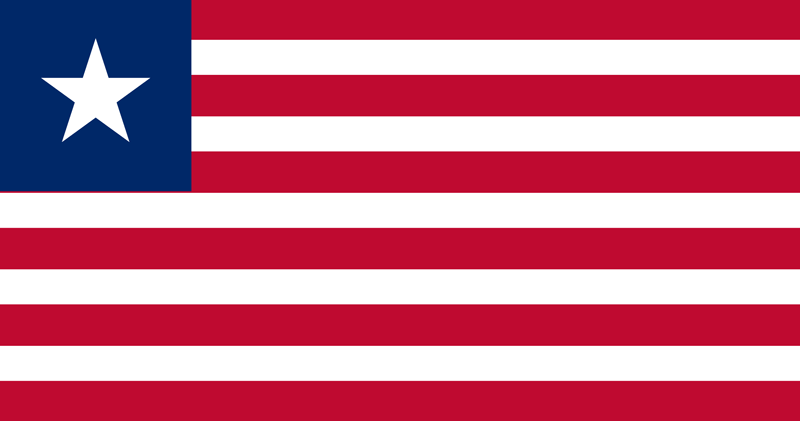
The Flag of Liberia
The story of Liberia in the 20th century is an interesting one. The country rightly and proudly proclaimed that she had never been colonized. However, Liberia was still an offshoot of the United States. Their language, culture, political system, their flag, and even their genetics had borne the stamp of the American nation. Liberia viewed itself as America's little sister, and many Americans returned the favor. There was an inextricable bond between the two countries, and this could best be seen in American bankrolling of Liberia's rapid development and America's helping in wresting the Ivory Coast from France to form the first Liberian puppet state. There was also a new ideology developing in Liberia with heavy African-American influence that would become a driving force for Black people on both sides of the Atlantic.
The Flag of Liberia
As previously mentioned, African-American communities had invested in developing Liberia. Factories, roads, power stations, and plantations were all built with African-American dollars to profit African-Americans, as well as the Americo-Liberian elite. Furthermore, some 79,090 African-Americans left America for Liberia from 1870-1900, making it one of the largest places Americans as a whole immigrated too. These bonds led to further integration and ties between Liberia and America, which allowed for further economic and social development. At the behest of their new and large African-American bloc, the Americo-Liberians enacted universal male suffrage (if on were African and could read English) in 1889, and built a proper school system in 1892. While the old elite resisted this at first, the African-Americans had numbers, money, and even Washington on their side. The schools were designed for the explicit purpose of "Liberianizing" the "Africans." In this regard, it was remarkably successful. By 1920, Liberia boasted almost universal English-language literacy, and the elite had obliterated most ethnic divisions and cultures, aside from some native dress and cuisine that had survived. Even names that might have once been "African" became "Black" or "Liberian." The massive boost in literacy also spurred the development of a truly modern economy, and Liberia had a GDP per capita that rivaled and exceeded quite a few parts of Europe, to the continent's chagrin.
In fact, much of Europe desired to conquer Liberia, both to suppress the "uppity Africans" and to appropriate the nation's fairly strong industrial base. Fortunately for the Liberians, they had a very large and powerful friend. In 1899, the United States and Liberia signed the Americo-Liberian Trade and Defense Pact, committing the United States to defend Liberia in case of an invasion. To show how serious they were, the Americans stationed 6,000 troops and a small Navy squadron, dubbed the Africa Squadron, in the country. This deterred any European aggression, as they hardly wanted to give the Yankees an excuse to come take their empires from them. More than just defending Liberia, the Americans helped them build a modern Army, Navy, and even helped them build a small Airforce. Liberia's military soon became a "pint-sized powerhouse" because while it wasn't massive, it was incredibly effective. Military parades became a staple of National Unification Day (established 1893), Independence Day, Flag Day and Thanksgiving (established 1887) celebrations as the Liberians rejoiced in their might as a "Free Black Man's Nation on an Enslaved Continent." Particularly popular were the flyovers of the Executive Mansion by the Airforce, which began on Independence Day, 1922. Liberia's exultation of the military helped unify the country and create a powerful strain of Liberian Exceptionalism.
Liberian Exceptionalism was most fully articulated in "A Guide to Black Civilization," published by future President Charles King in 1912. In it, he stated what he thought made Liberia unique and exceptional. He believed that Liberia, and African Americans, had not only successfully blended English-speaking civilization with African civilization to create "Black Civilization," but their struggles had made them uniquely tough. This combination of vigor and high civilization meant that the Black Man had a unique opportunity and burden. The opportunity was to wage war on the imperialist powers of Europe (America was held to be a benevolent Empire of Liberty, and parent of Black Civilization) and create a new domain in Africa for the Africans. However, they would also be burdened with "making Africans Black." The Liberians were destined to liberate Africa from European domination. However, they would then be forced to liberate them from "paganism, superstition, tribalism, and authoritarianism." Only Liberia could do this. The "Africans" were held to be incapable of governing themselves in a free and equal manner without proper guidance from men "similar in appearance, but enlightened in ideology." There was also a very strong religious component to this. God had established Liberia that the Liberians might spread his (Protestant) word to a people who had been denied it. In short, Liberia was destined by merit of her race, culture, might, and religion to become an African hegemon of some kind. This strain of thought became incredibly popular, and helped to elevate King to the Presidency in 1916. He oversaw the creation of the Republic of the Ivory Coast, and made Liberian Exceptionalism part of the national curriculum. Another notable policy of his administration was the Positive Eugenics Program (PEP) which encouraged Liberian women to bear more children. The Order of Mama Liberia was instituted in 1919 to this end, awarded to women who bore 8 or more children. The Order was a circular gold medal with the image of Mama Liberia's face embossed on it, attached to a blue ribbon with white stripes down both sides and a Lion (Liberia's national animal) on it. More notable than the eugenics program was the Ivory Coast.
When WWI ended, the French were broken and bankrupt. In order to pay their war debts, the French gave up land to the United States. Among the territories ceded was the Ivory Coast, a rich territory in West Africa bordering Liberia. Many thought that the Americans were going to form a colony in the region. Instead, the United States announced that free and fair elections ought to be held, and that the Ivory Coast would be a joint protectorate of the United States and Liberia. This was done at least in part at the behest of Monrovia. The Republic's first President, Yacouba Koffi was elected in 1920. However, the real powers were the Inspector-General of Economic Affairs (an African-American) and the Supreme Chief of National Security (a Liberian) who could essentially dictate policy as needed. However, it was determined that policy shouldn't be too skewed, so as to prevent rebellion. Further helping things was the creation of a national school system in 1919, paid for by the Liberian and American governments, and staffed by young Liberian and African-American women. They taught the children math, science, civics, and English. English was the exclusive language of instruction at the school, and helped bring the next generation more in line with what their unofficial masters desired. Protestant missionaries from Liberia came in and began trying to dislodge Catholicism and Islam. This did spark a great deal of trouble, especially among the Muslims. The Liberians responded with ruthless efficiency. Throughout the 1920's, there were over 21 small revolts related to missionary activity or Anglicization of language. It always ended the same: an overwhelming Liberian response that crushed resistance. Liberian officials also began mandating a limited policy of sterilization against particularly restive Muslim populations. The Americans were either indifferent or openly applauding the harsh measures of the Liberians, citing it as proof of their American roots and national vigor. Despite these issues, there were a great deal of people in the Ivory Coast and across Africa who admired Liberia. They were a powerful nation proud of their African/Black heritage in a world run by white men. A beacon of liberty on a dark continent.
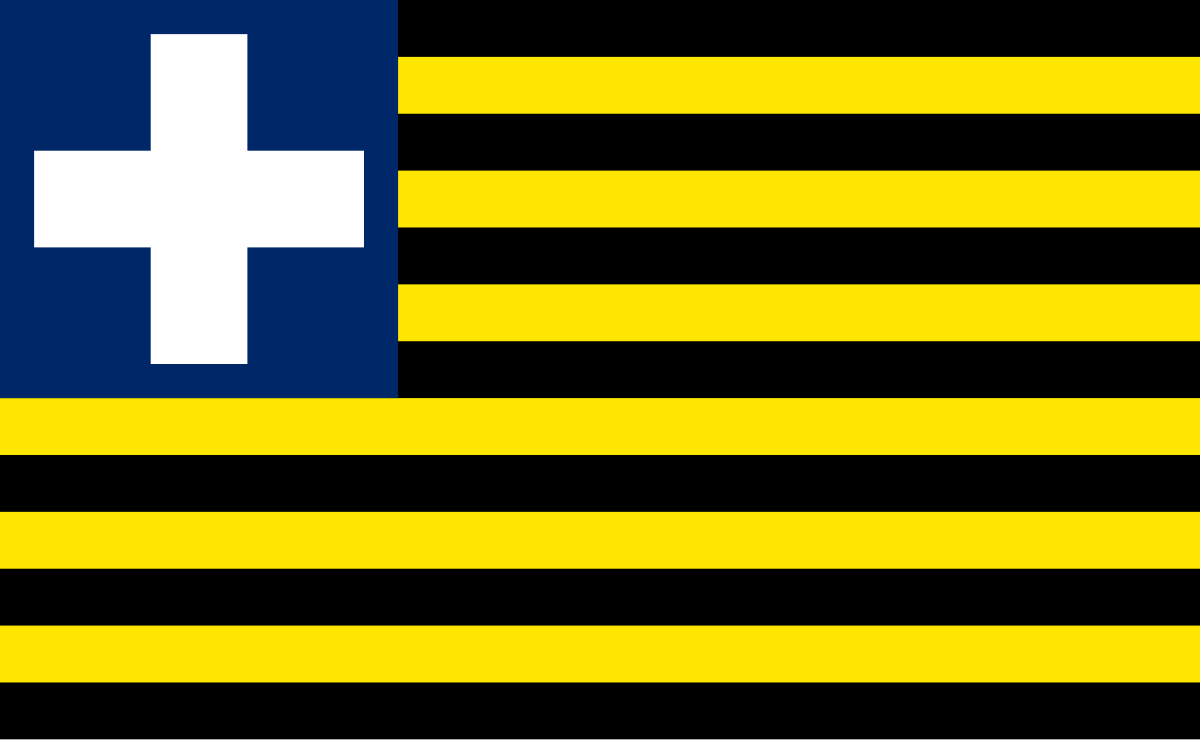
The flag of the Ivory Coast, despised among most Muslims for featuring a cross.
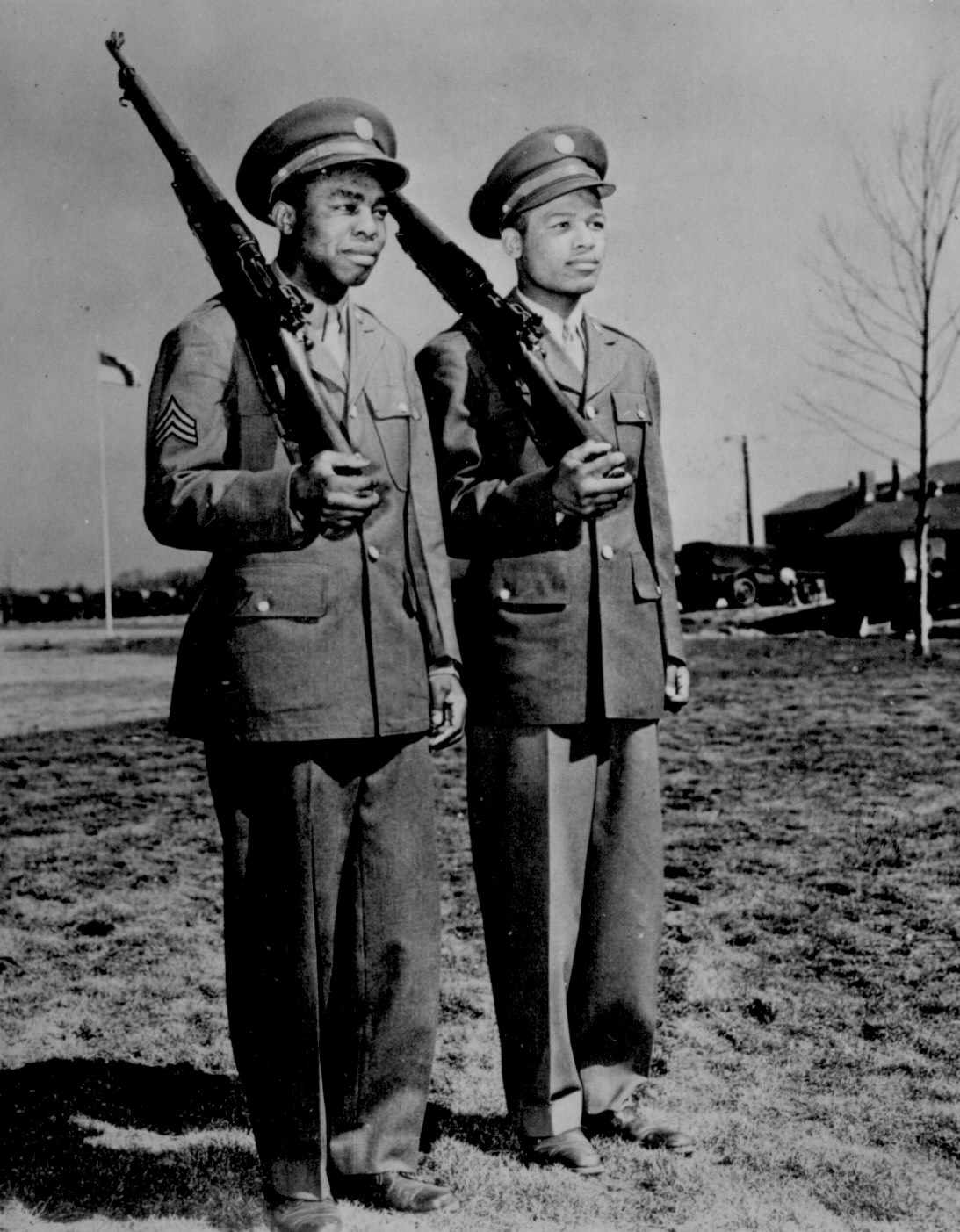
Liberian soldiers (1932)

Charles D.B. King, President of Liberia (1916-1928)
A Force for Reaction: The Second Empire of Brazil
A Force for Reaction: The Second Empire of Brazil

The Flag of the Second Empire of Brazil
Newton's third law states that for every action, there is an equal and opposite reaction. This played out in the politics of the Western Hemisphere during the 20th century. In the North, the Protestant Yankee Colossus was democratizing, elevating racial minorites, gobbling up land as fast as possible, and energetically spreading Protestantism through mission work, political benefits, and intermarriage. In the South, Brazil emerged as a somewhat dysfunctional, if still mighty, Catholic counterweight to all of these trends. To examine how this happened, we have to look at the Brazilian reaction to American expansionism.
The Flag of the Second Empire of Brazil
Many of the Catholic states of Latin America had elements who were alarmed by rampant Yankee expansion. However, most them were either irrelevant or bought off. Not so Brazil. It wasn't just the Protestantism or aggression of the Yankees that threw them off either. The Brazilian elite were also deeply disturbed by the universalist creed being spouted by the Americans, and their movement towards racial equality. Brazil had long been a very conservative place, and was the last country in the hemisphere to abolish slavery. While some lower class Brazilians, especially Afro-Brazilians, admired the US, Brazilian society as a whole was disdainful. This fed into extremism and nationalism, which the corrupt Republican government was ill-equipped to handle. Under pressure from nationalist military men in 1917-18, the Brazilian government taxed its already strained coffers to buy British and French Guiana, so as to prevent the Americans from moving in. Those regions immediately broke out into insurgency, which the military did eventually crush. However, the incompetence of the President and the Republic generally grated on the military to no end. It was perhaps inevitable that a coup would occur.
On June 5th, 1922, Colonel Lucas Barbosa and 12 other members of the brass arrested the President and his family. They were escorted to a ship, that thrust them into an Italian exile. Across the country, the military purged the very small number of Republicans from their ranks, and asserted control over the regional governors. The entire process took 13 hours. The Republic had been overthrown. Colonel Barbosa was a powerful young officer (only 39) from an elite family, who made a name for himself as a war hero in Guiana. The coup plotting had begun in January, and the unpopularity of the regime made it easy to execute. There was a brief power struggle, as several older generals tried to unseat the young Colonel, but they lost and either pledged fealty or were shot. The world watched with bated breath to see what would happen next. They needn't wait long. On June 11th, Colonel Barbosa announced the creation of the Second Brazilian Empire. On July 1st, he was coronated Emperor Lucas I of Brazil by a Brazilian cardinal. The Pope never officially endorsed the regime, but unofficially backed the ardently Catholic Emperor. From the coronation, the new imperial regime began installing "The New Imperial Thought" as the official ideology of the state.
The New Imperial Thought was arguably the first croixist ideology ever enacted. However, it was also distinct in several ways. First and foremost, the role of the aristocracy was prominent, whereas croixists didn't have any fondness for an aristocracy. The old elite of Brazil were put back into their former state of nigh total power, and the democratic movements that did exist were swiftly eradicated. The White aristocracy was held to be the country's "natural ruling class." The strident monarchism of the regime also set it apart from typical Croixism, as did the more laissez-faire and oligarchical economic setup. The final difference between the Brazilians and the Croixists was their racial ideology. The Brazilians didn't privilege any particular "branch" of Europeans, instead saying they were all equally noble and ought to mix to create a new "Brazilian Race." Whitening of the African and Native populations (and the Mestizos to a lesser extent) was also encouraged. Brazilian whitening policies soon took on a nasty tone. In order to create a gender imbalance in the African population especially, the Imperial regime began drafting Afro-Brazilian men en masse and using them as cannon fodder to deal with ongoing issues in Guiana, and later in the wars in Paraguay and Uruguay. This would force Afro-Brazilian women into marriages with White men, and reduce the security risk from potential uprisings. The policy was fairly effective, and was joined with other methods later.
Abroad, the Brazilian regime led a massive push from 1922-23 to reconvert the Catholics of the American territories. In response, the US banned Brazilian visitors and immigration, and ratcheted up tariffs on the country to over 30%. The Brazilians backed off and the tariffs came down, but the travel restrictions would remain in place for decades. Although the push did convert a few thousand Americans, Protestant organizations more than made up the difference with a renewed push in the Territories to convert Catholics, and this was backed by a government campaign to denigrate the Brazilians as fanatics. When the Pope issued pronouncements that were vaguely pro-Brazilian and anti-American without being formally so, conversions to Protestantism (some made fearfully) spiked across the US, as a wave of vitriolic anti-Catholicism rollicked the nation. Catholic immigrants to the US from Europe were required to swear that they wouldn't serve the Pope over Washington before being let into the country (a simple oral oath was sufficient). Aside from unsuccessfully waging religious cold war on the US, the Brazilians formed an anti-American alliance with Colombia in 1927, shortly after installing puppet dictators in Paraguay and Uruguay. In response to this and the growth of a corresponding American alliance system, Ecuador, Peru, and Bolivia banded together to form the Pact of Non-Aligned Powers. Aside from their empire-building in Latin America, Brazil signed the Lusophone Accords with Portugal in 1930, creating tight bonds between the two Portuguese speaking nations. The alliance would last for decades, and gradually become a Brazilian dominated affair.

Brazilian officers in Guiana (1923)
A Bolivian soldier with the flag of the Non-Aligned Powers (1929)
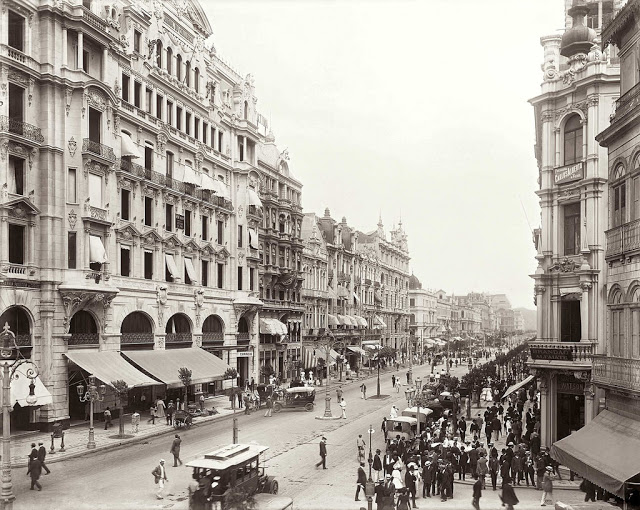
Rio in 1925. The city rapidly modernized under imperial rule
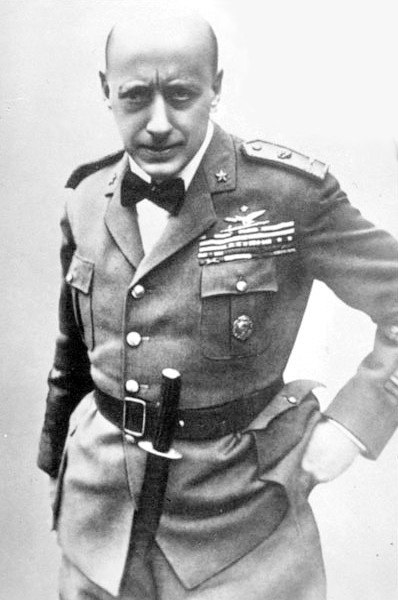
Emperor Lucas I in custom military uniform (1937)
The Neuties have arrived on the world stage. Seriously, though, it's nice to see something happening in South America, since it usually gets neglected in AH.Ecuador, Peru, and Bolivia banded together to form the Pact of Non-Aligned Powers
Will the second empire collospe affter ww2
Nope because they're not getting involved.
The Neuties have arrived on the world stage. Seriously, though, it's nice to see something happening in South America, since it usually gets neglected in AH.
S. America is arguably going to be the first front of the Shadow War with the rivalry being between America and Brazil.
Scramble for the Ottoman Empire
Scramble for the Ottoman Empire
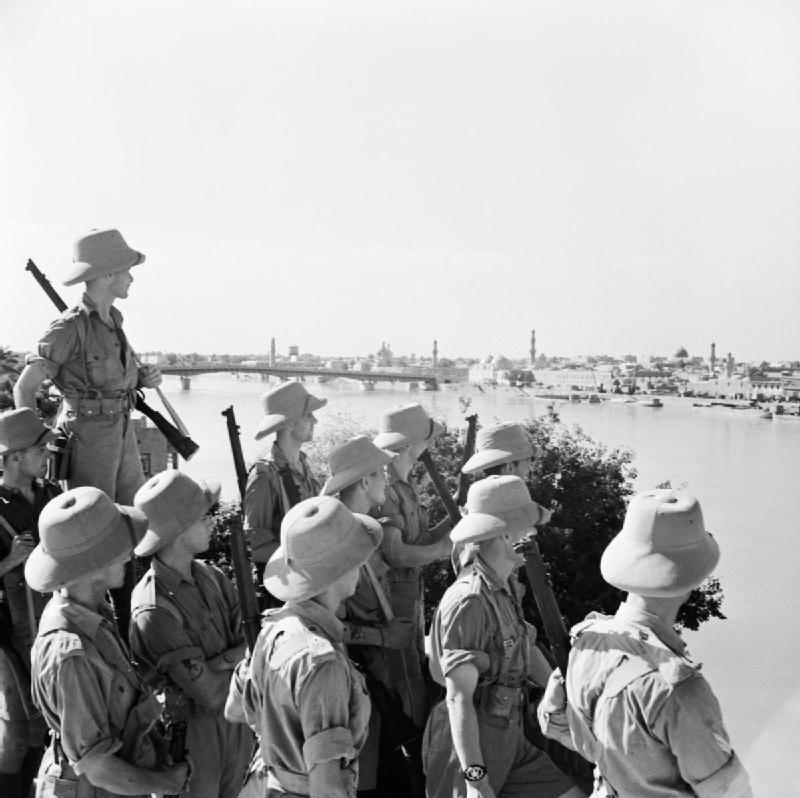
German troops look out on Baghdad, June 1928

German troops look out on Baghdad, June 1928
In 1925, the Ottoman Empire collapsed after a series of political assassinations decapitated the government. It was a long time coming. The Empire had been tottering on the brink for decades, and when it collapsed, it collapsed completely. In the aftermath of the collapse, a massive power vacuum emerged. Into the breach marched a coalition of Germany, Italy, Bulgaria, Norway, Denmark, Sweden, Finland, and Spain.
As the Empire crumbled, the Bulgarians made the first move. 379,000 Bulgarian soldiers stormed into European Turkey on May 9th, 1925, crushing remaining Ottoman forces, bandits, Islamist militants, and would be warlords. They quickly marched onto Istanbul, where their advance stalled. The Bulgarians would remain stalled outside Istanbul for the remainder of the Scramble. Shortly afterwards, the Italians launched an invasion from Italian Somaliland, landing in Aden on July 29th. From here, the Italians employed armored cars to great effect in the desert terrain, swiftly covering vast tracts of land. Fearing that the Italians would gobble up the entirety of Arabia, a coalition force of Germany, Spain, and the Scandinavian countries all rushed into the Holy Land via sea, launching from Spain and the Tripartite Empire (who volunteered their ports). They landed in the Holy Land on August 17th. The coalition's forces, a mix of infantry, tanks, armored cars, and airplanes, quickly fanned out across the Holy Land and Arabia. Bulgaria called upon its allies for help taking Istanbul, but received only token aid. Privately, the Germans didn't want the Bulgarians to take Istanbul, as they feared that a Bulgaria that controlled access to the Black Sea could hold Ukraine and Crimea hostage if relations broke down, not to mention the fact that it would inevitably spark a massive wave of Turkish resentment, which could spark another war.
Fighting was intense and confused for about a year. In the Holy Land, Germans and Spaniards not only had to subdue the locals, they had to stop them from killing each other, especially in Jerusalem. Istanbul continued to hold out against the Bulgarian onslaught, and the Germans or other allies were not about to contribute hundreds of thousands of troops to the cause. The Soviets attempted to invade Turkey proper, but weren't yet prepared for a real war and were repelled as a result. The Germans quickly annexed Lebanon and Syria before moving into Mesopotamia and Arabia. These were tougher, especially Mesopotamia, which was home to multiple conflicting ethnic groups. In Arabia, Germano-Scandinavian forces encountered the Italians, and for a period between December 1925 and July 1926, an unofficial war was fought between the two as the Italians sought to annex the entirety of the Arabian Peninsula. As fighting intensified, many feared that the Germans were going to invade Italy, or that the Italians would invade the Tripartite Empire, sparking WWII. This didn't happen, as fighting between the two sides remained fairly minor all things considered, and neither side was willing to take the war outside of the Middle East.
On July 1st, 1926, the United States State Department offered to mediate the dispute as a "wholly disinterested party." Wanting to end the quagmire and focus on consolidation, the parties agreed. The Treaty of Havana was signed a month later, after much haggling. Italy got most of the Arabian Peninsula, which they established a protectorate kingdom in. A joint Scandinavian trust was established over Bahrain, Qatar and the Trucial States of Oman (UAE), which had fallen into chaos after Britain de facto abandoned them after WWI. Spain kept the Holy Land, but didn't get Jordan like they had hoped. Germany annexed Mesopotamia, Jordan, Syria, Lebanon, and part of the Arabian Peninsula. The Germans also installed a client regime in Turkey proper. Bulgaria annexed European Turkey aside from Istanbul. The dismemberment of the Old Ottoman Empire was complete. The Sick Man of Europe was dead.
In the aftermath, each nation established their rule in different ways. Germany directly annexed Mesopotamia, Syria, Lebanon, and Jordan, organizing them into colonies. Turkey became a nationalist dictatorship that answered to Berlin. The Germans would also later buy off the Persians to form a buffer between them and the increasingly bellicose Soviets. German rule wasn't harsh, but it wasn't liberal either. The Scandinavian countries established the Pan-Scandinavian Near Orient Company (PSNOC), which was skewed in favor of the Swedes but which was run by men from all the Scandi countries. Scandinavians as a group were privileged in the colonies, and some 40,000 would move there to enjoy the privileges available to them. The Italians ruled through a collection of kings and tribal leaders, being fairly relaxed and indirect. In the Holy Land, the Spanish were nothing short of the Second Coming of the Conquistadors, brutally suppressing the population and energetically pushing Catholicism on the locals. Thousands of Spaniards flooded in as well, particularly to Jerusalem. Not coincidentally, the territory would be eternally restive. Finally, in the small gains made by the Bulgarians, the Turkish population was gradually deported to Turkey proper to make way for Bulgarian colonization. The failure to take Istanbul would remain a sore point for years to come. Resistance died down for the most part after the Partition of the Empire, but the region would remain contentious for years to come.
Bulgarian troops pose in Turkey (1927)

A furniture showroom in Scandinavian Qatar (1930)

Spanish forces on the West Bank (1925)
Last edited:
You never mentioned what happen to Baharian. It is an island nation so it is not part of the Arabian Peninsula .
Edited to give it over to the Scandinavian powers
Threadmarks
View all 88 threadmarks
Reader mode
Reader mode
Recent threadmarks
From Camelot to Chaos: The Kennedy Years "He's A Damn Demagogue:" The One-Term Presidency of Thomas Sowell The Dragon Rises The World in 1980 The Country's Not Alright: The One-Term Presidency of Richard Brown Culture War: The New Jihad/Tenth Crusade The Great Melting Pot: Race Relations, Intermarriage and the Rise of "American Race Theory" "A New Eurasia"- Status
- Not open for further replies.
Share: